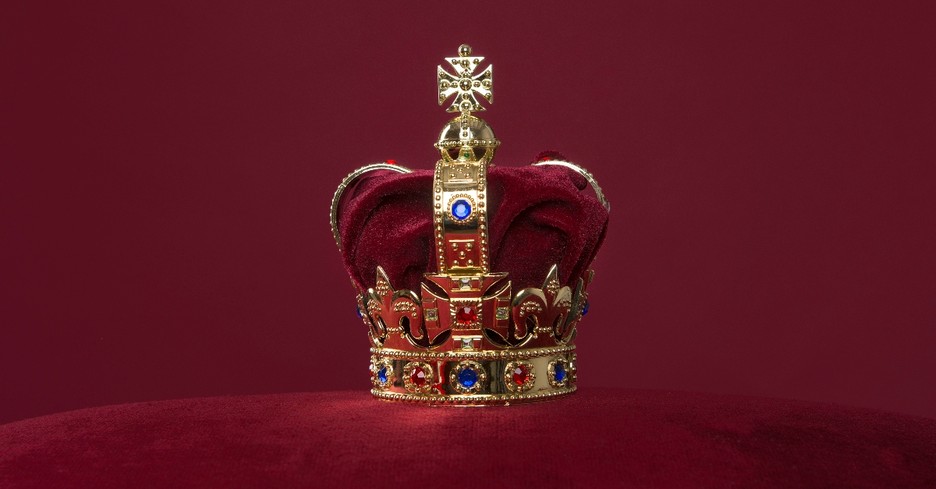
Kings throughout history have had the belief they were ordained by God. The kings in the Bible were actually ordained by God, such as Saul and David, as well as David’s descendants (1 Samuel). However, were the kings throughout time since the Bible ordained by God? Moreover, why did kings believe they were ordained by God?
What Was the Divine Rights of Kings?
The idea of kings believing they were ordained by God started in the medieval period with a doctrine called “The Divine Rights of Kings.”
The center focus of this doctrine was on the “superiority and legitimacy of a monarch” (Tiffany Foresi, “‘The absolute right to rule’ – The Divine Right of Kings,” 2014). Moreover, the Divine Rights of Kings was a textbook written by James VI of Scotland in 1597–1598 (Matthew A. McIntosh, “A History of the Notion of the ‘Divine Right of Kings,’” 2020).
In this textbook was recorded the doctrine of the divine rights of kings. Using the Bible, this doctrine crafted the idea that all kings were divinity placed into their position by God. James I of England influenced this doctrine as he referred to kings as “God’s lieutenants” and referred to kings as being “gods” themselves.
James I is recorded as making this statement before parliament, “The state of monarchy is the supremest thing upon earth, for kings are not only God’s lieutenants upon earth and sit upon God’s throne, but even by God himself, they are called gods” (McIntosh).
The idea of the divine rights of kings was a ploy to push for obedience to the king (Foresi). Thus, the divine rights of kings advocated the belief that kings had the equal authority of God Himself.
This man-made doctrine of the Divine Rights of Kings is not truly given by God. Before James VI of Scotland had even written his textbook concerning the divine rights of kings, Henry VIII had already announced himself to have the divine rights of a king when he separated from the Holy Roman Catholic Church because the Pope refused to annul his marriage.
Within the divine rights of kings, individual kings are given complete and ultimate power to reign. Within this logic, the king has the divine right to make any decision and the people must respond in obedience. If the people would not respond in obedience, the king had the right to execute the individual.
Another name for the divine rights of kings is “God’s mandate.” As the name suggests, it asserts the concept of every king being anointed and mandated to become king by God Himself. Within this doctrine, kings have ultimate authority within the monarchy in religious and political matters.
Whatever the king declares is truth and every person has to submit to the king’s edict because he has been ordained by God to be king and make these decisions. Despite kings believing this way of thinking, it is not correct.
What Does the Bible Say?
The concept of the Divine Rights of Kings is not biblical. God did ordain kings in the Bible to become kings, such as Saul, David, and Solomon; however, God did not ordain kings throughout history.
God never intended for there to be human kings; however, since the people rejected God as their king, God gave the people Saul to be their king (1 Samuel 8:1-22). As the Bible records, Saul disobeyed the Lord and was a terrible king for Israel.
It was not until David was anointed king in place of Saul that Israel thrived as a nation. Saul lost the kingship because of his disobedience and unfaithfulness to the Lord. David was ordained by God to be king because David was a man after God’s own heart (1 Samuel 13:14). After David, some kings were good, whereas other kings were terrible.
After the time of the Bible, God did not ordain kings. The kings in the Middle Ages and monarchy period of England believed they were ordained by God because of the man-made doctrine of the Divine Rights of Kings.
The Divine Rights of Kings was not divinely inspired by God nor is it the true words of God. Only the Bible is the true Word of God (2 Timothy 3:16-17). The reasons why kings believed they were ordained by God stemmed from selfish, prideful, and political reasons.
Within the reign of the kings, they were not concerned about glorifying God and helping others to know about Jesus’ death, burial, and resurrection. The kings were concerned about making political alliances, cultivating the popularity of their rule, and obtaining as many financial sources as they could get their hands on.
God did not ordain the kings of England, nor did He anoint the pope as the head of the church. These different leaders within religious and political organizations were never started by God. Ideas of absolute monarchies and supremacy over others were crafted by mankind and were focused on maximizing political power over others.
Who Is the True King?
The true King is Jesus Christ (Revelation 19:13-16). All kings are ultimately under the rule of Jesus. God did ordain kings in the Bible; however, the kings after biblical times cannot be properly declared as being ordained by God.
However, God does tell Christians to respect authority (Romans 13:1-7). Within this passage of Romans 13:1-7, Paul tells us that all authorities have been instituted by God. This is true as all authority figures have been placed in power for a reason, whether if they are bad or good leaders.
This does not mean we must obey authority figures if they are promoting teachings contrary to the Bible, but rather, that we must show respect to all authority figures.
When Jesus returns for His Second Coming, He will establish His earthly reign as King. There will be no other kings as Jesus will be the ultimate King overall. His rule will extend to the ends of the earth and will endure forever.
Daniel prophesied about Jesus’ earthly reign as Daniel prophesied, “He was given authority, glory and sovereign power; all nations and peoples of every language worshiped him.
His dominion is an everlasting dominion that will not pass away, and his kingdom is one that will never be destroyed” (Daniel 7:14). Jesus’ reign as King will be awesome, amazing, and will last forever.
For further reading:
What Does it Mean That Jesus Is the King of the Jews?
What Does it Mean That Jesus Is Prophet, Priest, and King?
How Did a Man after God’s Own Heart Fall So Far into Sin?
What Does it Mean That God Is the King of Glory?
How Can We Read the Bible as Culture Changes?
Photo Credit: ©iStock/Getty Images Plus/MirasWonderland








